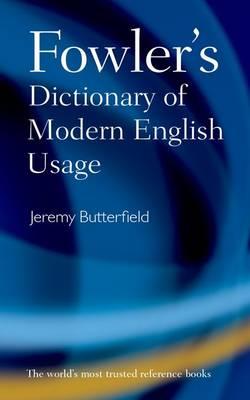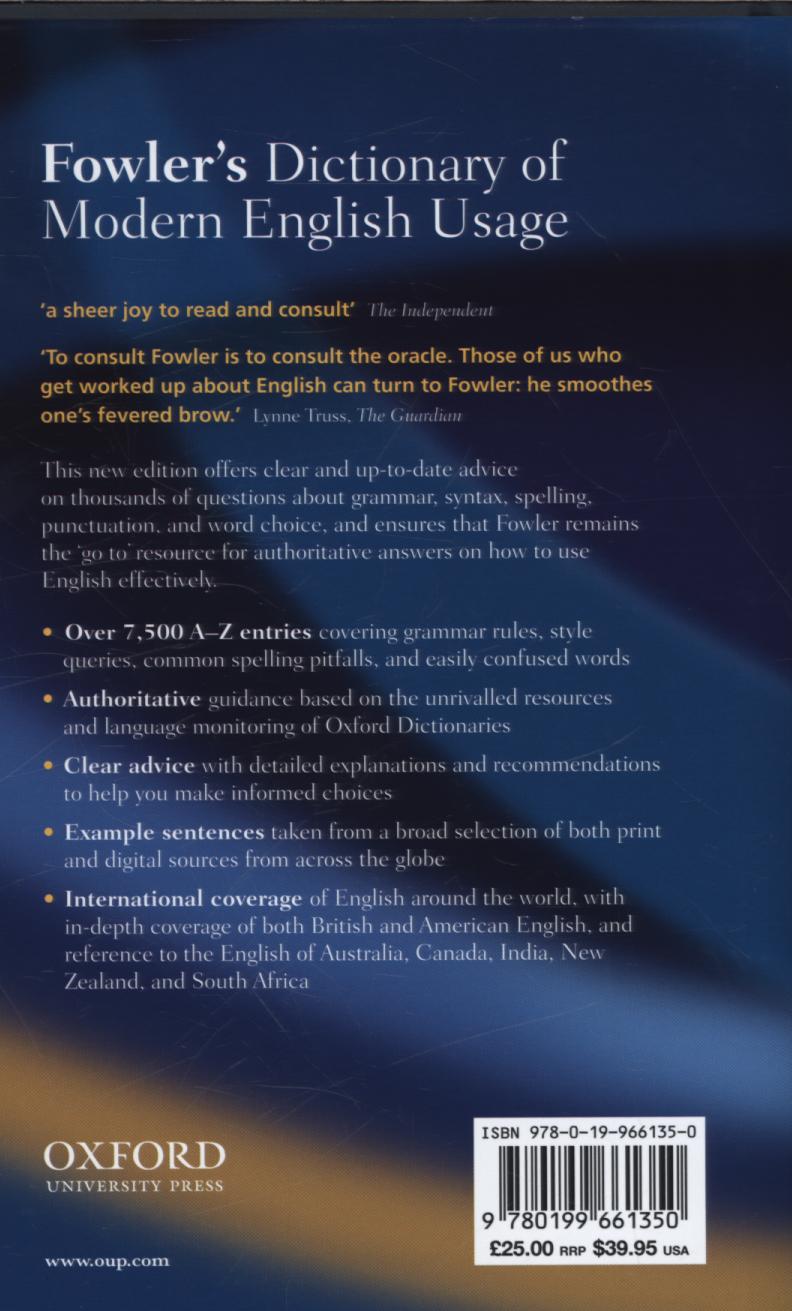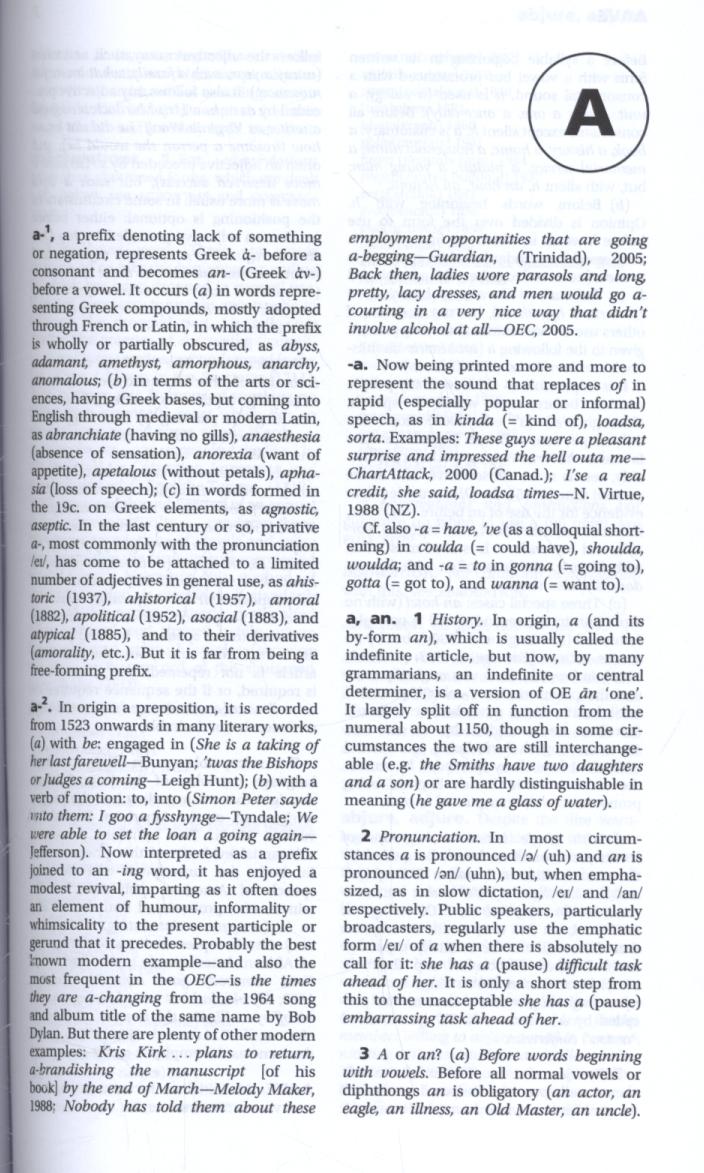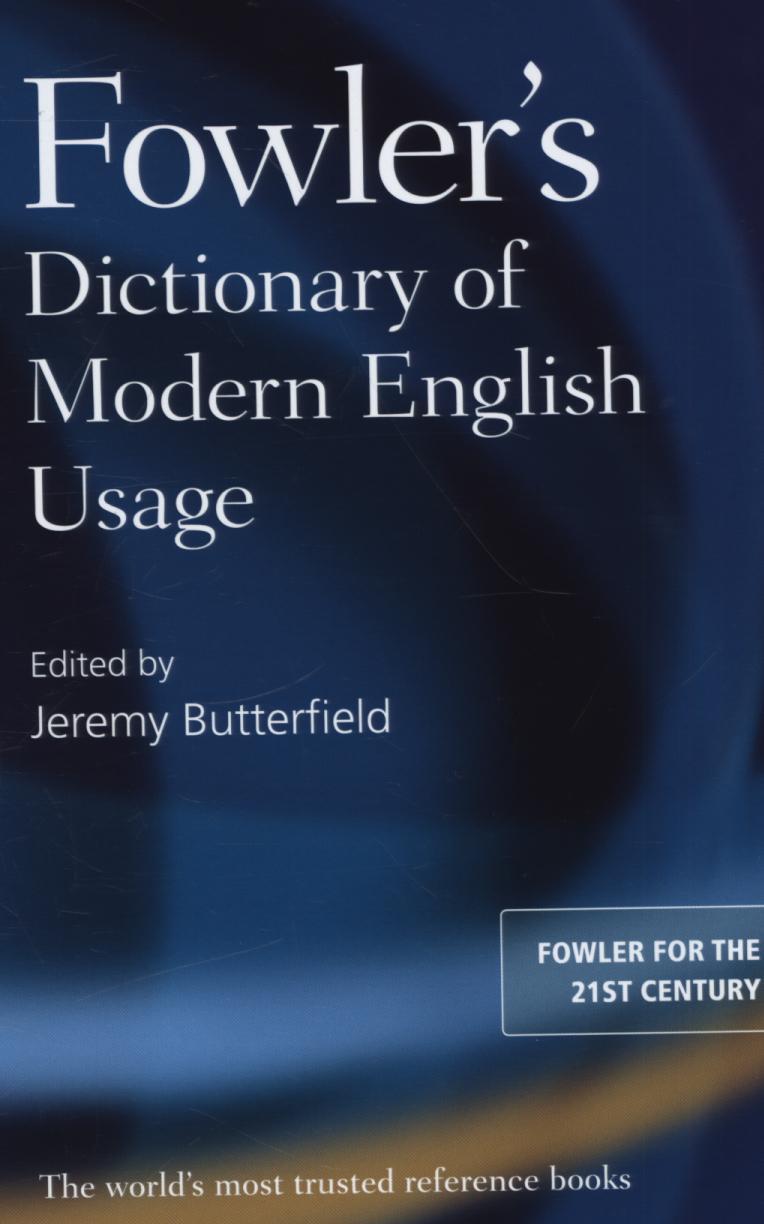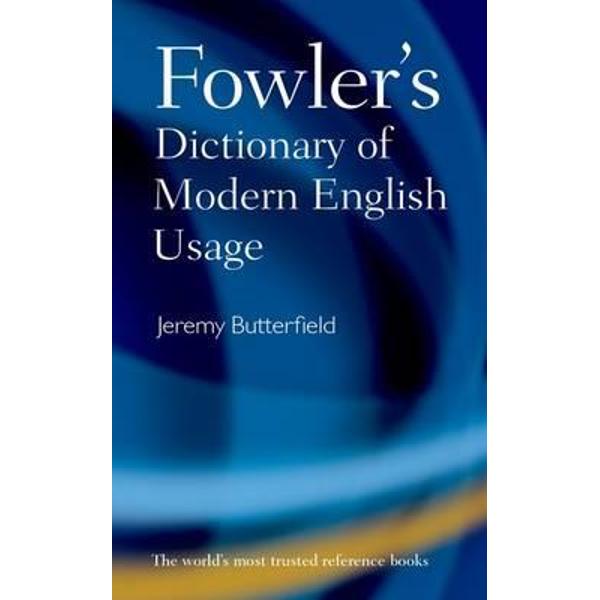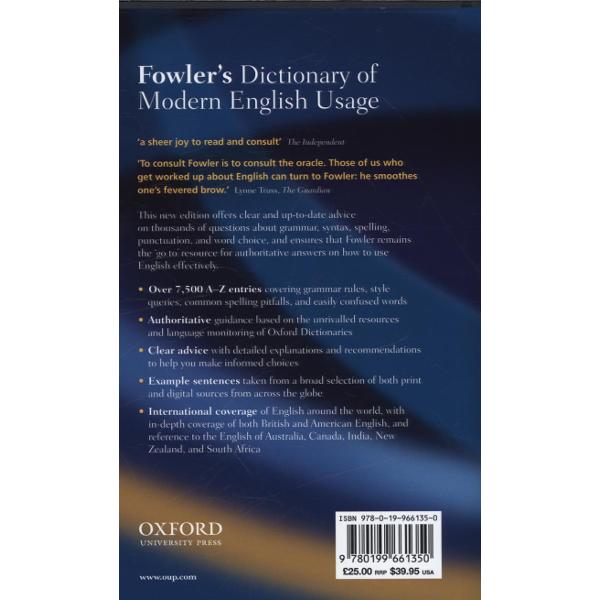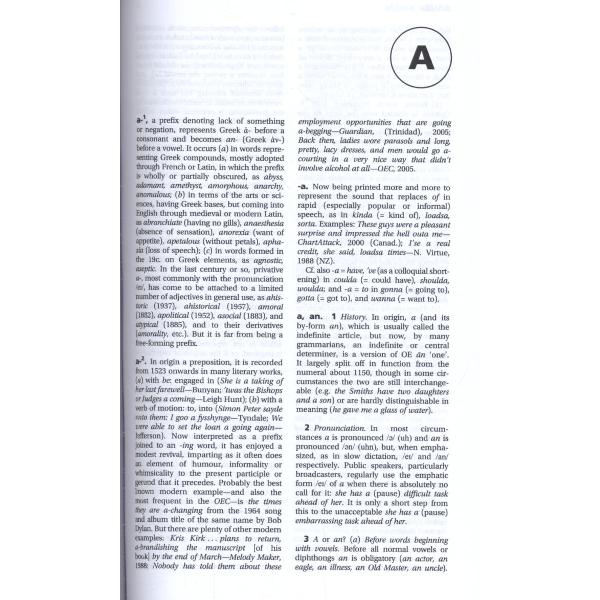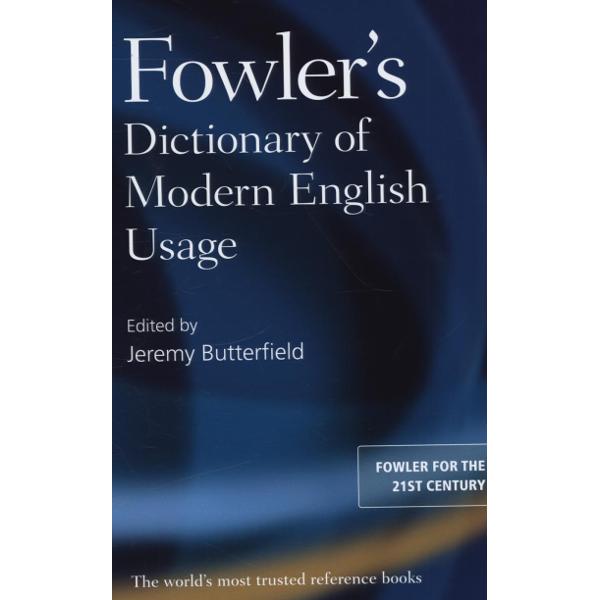Fowler's Dictionary of Modern English Usage
Fowler's Dictionary of Modern English Usage
Why Americans think home in on something is a mistake and Brits think hone in is.
Is it OK to spell OK okay?
What's wrong with hence why?
Was Alanis Morrisette ever ironic?
Fowler's Dictionary of Modern English Usage is the world-famous guide to English usage, loved and used by writers, editors, and anyone who values correct English since it first appeared in 1926. Fowler's gives comprehensive and practical advice on complex points of grammar, syntax, punctuation, style, and word choice.
Now enlarged and completely revised to reflect English usage in the 21st century, it provides a crystal-clear, authoritative picture of the English we use, while illuminating scores of usage questions old and new.
International in scope, it gives in-depth coverage of both British and American English usage issues, with reference also to the English of Australia, Canada, India, New Zealand, and South Africa. The thousands of authentic examples in the book vividly demonstrate how modern writers tackls debated usage issues. They come on the one hand from established literary figures such as Chinua Achebe, Peter Ackroyd, Raymond Carver, Iris Murdoch, Harold Pinter, and Vikram Seth. On the other, they are
drawn from a vast range of newspapers, journals, books, broadcast material, websites, and other digital sources from across the globe, and include references to topical personalities such as Stephen Fry, Prince Harry, Jeremy Paxman, and Wayne Rooney.
Based on the evidence and research of the Oxford Dictionaries Programme, this is the most comprehensive and authoritative guide to usage available.
PRP: 215.93 Lei
Acesta este Prețul Recomandat de Producător. Prețul de vânzare al produsului este afișat mai jos.
194.34Lei
194.34Lei
215.93 LeiIndisponibil
Descrierea produsului
Why Americans think home in on something is a mistake and Brits think hone in is.
Is it OK to spell OK okay?
What's wrong with hence why?
Was Alanis Morrisette ever ironic?
Fowler's Dictionary of Modern English Usage is the world-famous guide to English usage, loved and used by writers, editors, and anyone who values correct English since it first appeared in 1926. Fowler's gives comprehensive and practical advice on complex points of grammar, syntax, punctuation, style, and word choice.
Now enlarged and completely revised to reflect English usage in the 21st century, it provides a crystal-clear, authoritative picture of the English we use, while illuminating scores of usage questions old and new.
International in scope, it gives in-depth coverage of both British and American English usage issues, with reference also to the English of Australia, Canada, India, New Zealand, and South Africa. The thousands of authentic examples in the book vividly demonstrate how modern writers tackls debated usage issues. They come on the one hand from established literary figures such as Chinua Achebe, Peter Ackroyd, Raymond Carver, Iris Murdoch, Harold Pinter, and Vikram Seth. On the other, they are
drawn from a vast range of newspapers, journals, books, broadcast material, websites, and other digital sources from across the globe, and include references to topical personalities such as Stephen Fry, Prince Harry, Jeremy Paxman, and Wayne Rooney.
Based on the evidence and research of the Oxford Dictionaries Programme, this is the most comprehensive and authoritative guide to usage available.
Detaliile produsului









